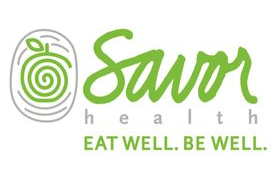When you are undergoing lung cancer treatment, it can be difficult to figure out what foods to eat and what foods you are going to tolerate. With treatment side effects like nausea, diarrhea, and lack of taste, coupled with a decreased appetite, mealtime can be an overwhelming experience. It is even tougher if you follow a restrictive diet, such vegetarian, vegan, or gluten free. As overwhelming as it can be, nutrition is a crucial part of success during treatment. Preventing weight loss and malnutrition can help you get through treatment with fewer side effects and treatment breaks. Here are some tips on how to maintain adequate nutrition during cancer treatment while following a specific diet.
Vegetarian
Those who follow a vegetarian diet eat any foods other than meat, such as chicken, fish, beef, and pork. Some may also remove animal products like milk, eggs, or cheese from their diets. While undergoing lung cancer treatment, a vegetarian diet can be easily adhered to with appropriate guidance, being sure to focus on adequate protein. Protein is a vital nutrient during cancer treatment, helping your body heal and recover as well as maintain muscle mass. It is important to include enough other forms of protein, such as beans, nuts, yogurt, eggs, cheese and cottage cheese. Speak with a registered dietitian about the specific needs of a vegetarian diet during cancer treatment.
Vegan
While a vegetarian diet only avoids meat, a vegan diet cuts out all meat products, including eggs and milk. It is even more important for a vegan to consume plant-based proteins, such as beans, soy products, nuts and nut butters, and whole grains. While these foods do contain protein, it is not nearly as much as most animal products. For this reason, you may need to include a protein powder or shake made from beans or peas to supplement your diet.
Another thing to consider while following a plant-based or vegan diet is to ensure you are getting enough calories to prevent weight loss. Plant products by nature have fewer calories, which could cause weight loss if your appetite has decreased from treatment-related side effects. Increasing your intake of high-calorie vegan foods, such as avocados, olives, olive oil, nuts, and nut butters, would be critical to maintaining weight. It is recommended that a vegan lung cancer patient meet with a registered dietitian regularly to ensure that they are getting the adequate amounts of calories, protein, vitamins, and minerals.
Gluten Free
Many people follow a gluten-free diet due to gluten intolerance or a severe form of autoimmune gluten intolerance called celiac disease. For these people, eating gluten, or the protein in wheat, can cause significant digestion pain, bloating, or other more serious problems. Gluten is found in wheat, rye, and barley products. If you do have gluten intolerance while undergoing lung cancer treatment, it is recommended to continue with the gluten-free diet to prevent digestive or long-term issues. Gluten-free bread, oatmeal, and pasta, as well as non-gluten-containing whole grains, such as brown rice, quinoa, and millet, are good alternatives to gluten-containing foods. Whole grains, including these gluten-free whole grains, are a good source of fiber and are important to keep in the diet. The dietary fiber from these grains can help maintain regularity and prevent constipation, which is a common side effect of some medications regularly taken during cancer treatment.
Dairy Free
Many people restrict dairy products such as milk, yogurt, and cheese due to sensitivities in digesting lactose, one of the sugars found in dairy products. Some may become more sensitive to dairy during lung cancer treatment because chemotherapy or radiation treatments may affect their digestive system, causing dairy to promote excessive gas, bloating, or diarrhea. Non-dairy alternatives, such as almond or soy milk and coconut yogurt, are adequate replacements for cow’s milk products. If you were avoiding dairy prior to starting treatment, there is no need to introduce it back into your diet. While non-dairy alternatives are typically supplemented with equivalent amounts of calcium and vitamin D, some may not contain the same level of protein as cow’s milk dairy product. For this reason, it is still important to make sure you are getting adequate protein from other sources like beans, nuts, eggs, and lean meats.
Following a special diet does not have to be an overwhelming experience. Finding foods that you tolerate and find appetizing is the key to success during treatment no matter what type of diet you follow. Whether you follow a vegan, vegetarian, gluten-free, or dairy-free diet, it is important to be proactive about your nutritional intake while you are actively fighting lung cancer. Nutrition is an integral part of lung cancer treatment, and meeting regularly with your registered dietitian is a good first step to take to ensure you are getting adequate calories, protein, vitamins, and minerals.
~~~
Looking for instant and personalized nutrition advice? Check out Ina®, Your Personal Intelligent Nutrition Assistant. You can communicate with Ina® 24/7 to receive clinically appropriate and “on demand” nutrition support and guidance. She’ll respond with personalized nutrition tips, recipe, and answers to your questions—no phone calls or appointments necessary.
Visit LUNGevity’s website to learn more about Ina®. Click here to sign-up for Ina®.
 Savor Health is a provider of personalized nutrition solutions designed exclusively for cancer patients based on evidence-based science and clinical best practices and provided by a team of oncology-credentialed registered dietitians.
Savor Health is a provider of personalized nutrition solutions designed exclusively for cancer patients based on evidence-based science and clinical best practices and provided by a team of oncology-credentialed registered dietitians.
Submit your questions here and the experts at Savor Health may answer it in an upcoming blog!
